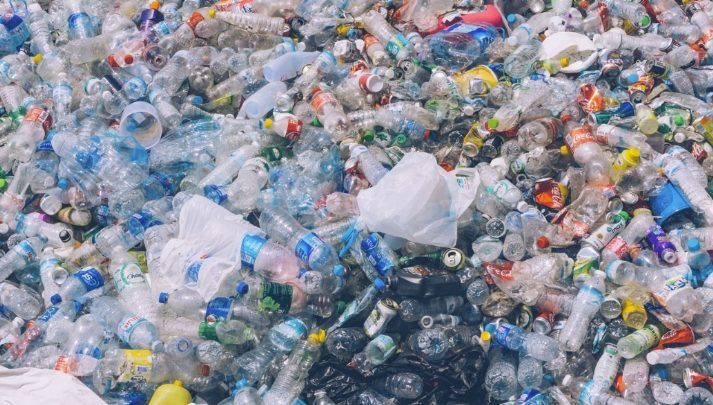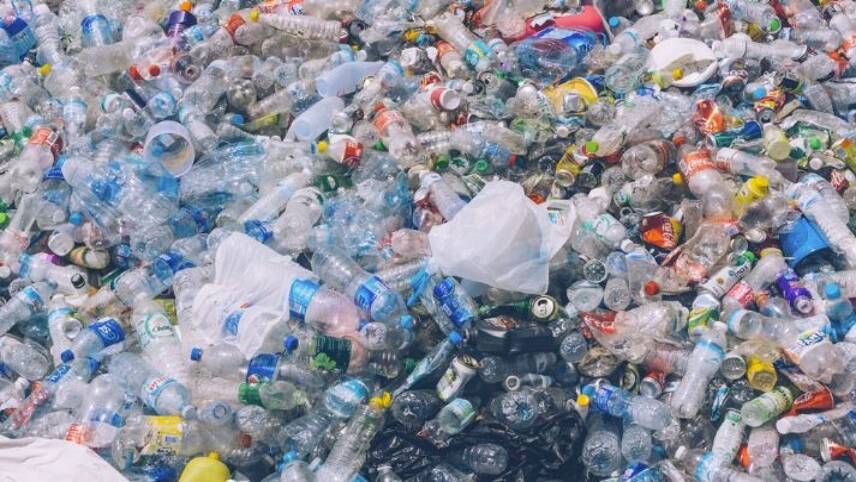Report Calls on Companies to Prioritise Deplastification to Resolve Plastic Crisis

The report cautions businesses about the repercussions of employing "ineffective remedies."
Surfrider Foundation Europe has just published a fresh report today (4 July) that sheds light on how businesses are obstructing efforts to reduce plastic, urging companies to give top priority to "deplastification" in order to address the ongoing plastic crisis.

According to a study conducted by the United Nations Environment Programme (UNEP), plastic contamination has the potential to triple by the year 2040, if present patterns persist.
In reaction, the report urges brands to establish a clear course towards reducing plastic usage. This should involve making solid commitments and implementing customized strategies that actively decrease the reliance on plastics, rather than relying on measures and promotion that may inadvertently encourage more demand for plastic consumption.
Businesses are advised to assess their dependence on the current recycling system. Despite investing more money, the competitive prices make plastic recycling a challenge. Furthermore, the ongoing expansion of plastic production adds more strain to the already burdened infrastructure.
Based on the findings of the Organisation for Economic Cooperation and Development (OECD), the recycling rate for plastics in the European Union (EU) stood at a mere 14%, while globally it was just 9% in the year 2019. Another study conducted by Surfrider Foundation Europe revealed that a paltry 2% of plastics undergo multiple recycling processes.
According to the report, tiny plastic balls that are crucial for making plastic products can go missing during the process of creating and distributing them. However, using alternative materials like "biobased" or "biodegradable" plastics does not effectively deal with the negative consequences and might even lead to new issues, such as people being uncertain about how to properly dispose of them.
Therefore, the report cautions businesses about the negative outcomes of "incorrect remedies" because they result in squandering important financial assets needed for the transition to zero plastic. Instead, it proposes that companies embrace innovative approaches to deplastification through Research and Development (R&D) efforts, rather than implementing insignificant alterations to maintain the status quo in business operations.
Surfrider Foundation Europe has partnered with the Break Free From Plastic movement and has recognized five approaches implemented by companies to sustain pollution.
Certain corporations evade responsibility by placing the blame on consumers, disadvantaged communities, and local governments, alleging that the problem of plastic pollution arises from improper recycling practices.
Present investments and research and development in plastics center around techniques such as recycling and bioplastics that are aware of their incomplete ability to completely resolve the crisis. To effectively prevent plastic pollution in the ocean and address the associated risks to health and human rights, it is crucial to implement a robust strategy for removing plastic from circulation.
According to the report, the use of emotional narratives leads to the endorsement of ineffective solutions that cannot effectively address the issue of plastic pollution, such as recycled materials or biodegradable plastics.
To illustrate, asserting that an eco-friendly item utilizing reused plastic or organic materials can "rescue" or "purify" the ocean is actually working against the intended goal. This is because it encourages higher sales, ultimately exacerbating the detrimental consequences on the environment.
The French Ethics Council for Advertising has declared that the advertisement campaign by Adidas promoting their Stan Smith shoes as "100% iconic, 50% recycled" and the IKKS sailor-stripe shirt that claims to "clean the ocean" did not adhere to the Council's guidelines. This instance is just a single case mentioned in the report, where prominent brands like Nestle and Unilever are also discussed.
The report cautions brands against using deceptive tactics such as exaggerated or confusing methods of calculation, reporting, and rating tools. It encourages businesses to choose indicators that prioritize the actual outcomes achieved rather than the amount of effort put in, when setting targets and key performance indicators (KPIs).
The study highlights the alarming concept of "plastic neutrality," a practice that hinders progress and enables companies to carry on with their plastic usage. They achieve this by financing the retrieval and recycling of an equivalent quantity of plastic waste in the environment, masquerading it as attaining "neutrality."
Edie has released an article exploring the practicality of plastic credits as a potential alternative for businesses.
The report encourages businesses to recognize and accept their duty regarding the plastic problem, grasping the complete influence of plastics and their own involvements.
Businesses are required to reveal a yearly confirmed evaluation of their plastic usage. This assessment should encompass all aspects of their company's activities, such as the utilization of plastics in product manufacturing, packaging, transportation, logistics, advertising, and marketing.
Sufficient resources and supervision must be in position to guarantee adherence and advancement, along with yearly public revelation of finances and obligations.
The report highlights the need for immediate and proactive assistance in implementing comprehensive regulations aimed at reducing plastic waste, in order to effectively address the plastic crisis.
Earlier this year, CDP unveiled a fresh addition to its worldwide environmental reporting system, which allows companies to document and share information about their plastic manufacturing and consumption.
© Faversham House Ltd 2023 edie news articles can be duplicated or shared for personal use exclusively. Any other form of reproduction or distribution requires prior written authorization.







































































